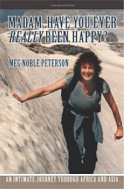In the 1960’s few children escaped the scourges of measles, mumps, and chicken pox. But at my house I was blessed, because all five came down at the same time with each disease, so I could consolidate the care and not spread it over weeks and months. And how lucky I was that the old whooping cough, which I remembered, vividly, as a child, had been all but eradicated by the new childhood DPT inoculations.
It seems to me that these unwelcomed visitors usually arrived around January, right after the Christmas rush. As a parent I could look forward to staying at home with the shades drawn, listening to old 78’s of The Little Engine That Could, and gripping musical stories like The Carrot Seed and Danny Kaye’s Hans Christian Andersen. For variety there were friendly folk songs rendered by Tom Paxton and Burl Ives—available on our handy, child-operated record player. But to tell the truth, all I really cared about was getting out by spring.
Measles was the worst! It started with a runny nose, high temperature, sore throat, and aches and pains. At first you thought it was the flu until those little red bumps appeared all over the body. And the worst was the conjunctivitis, which meant the eyes had to be protected. There could be no television and we were admonished to keep the house darkened, not allow any reading (except what was done by the parents), and keep the children as quiet as possible. Yeah, right! Nowadays, if a child is unfortunate enough to get one of these old-fashioned diseases, the mother could at least don a headlamp and protect herself from eyestrain. But the only people using such devices back then were coal miners.
I remember the youngest, still not two, lying in my arms for what seemed like days, with a burning fever, while I read endless Golden Books to children draped over the couch or wrapped in blankets on the floor. Nobody escaped what seemed to us like a rite of passage.
Fortunately, mumps did not hit my children very hard. In fact, they found their swollen faces mostly laughable. During that particular illness I was more relaxed when it came to activities in their room, until I discovered that Martha had climbed up into her cupboard, found a jar of Vaseline, and proceeded to paint murals all over her bedroom wall with her fingers. I didn’t get too upset, however, because I hated the color of the room and, besides, she showed a lot of imagination in her scribbles.
On the other hand, chicken pox was a pain because you had to restrain little fingers from scratching those ugly red spots. But measles, as I’ve said before…you didn’t fool around with measles!
Dr. Partenheimer, our wonderful, talkative, and easy-going doctor, would usually come by the house when enough children were sick to make it worth our while, and, after examining each child in turn, would ask me if I wanted to be checked as well…just in case. It was all very relaxed and the kids looked forward to it. Oh, goody, here he comes with his black leather bag and stethoscope. They would scramble to line up, hoping to be first.
By the time 1965 rolled around, there were no more house calls. I hated to take my kids to the doctor for checkups and expose them to other children, who were snuffling and coughing, or to take mine when they seemed near death’s door with a fever. But that’s how it was. It was called progress. We paid a reasonable fee for these services, and if memory serves me, we had no medical insurance. That was invented later.
Sick children were a challenge, or that’s how I chose to look at it. I’d put them to bed and bring them notebooks containing puzzles, connect-the-dots, animals to color, cut-outs, and small stories…definitely not great literature, but entertaining. I insisted that they stay in pajamas and bathrobes all day to get the point across that yes, they were, indeed, sick. They were not allowed to leave their rooms, watch TV, or engage in any boisterous activity. This was not to be interpreted as a vacation from school.
Big favorites during the recuperation phase were Legos and Lincoln Logs, which were not as fancy as now, but provided hours of quiet pleasure, much as action figures and battery-operated toys do today. There was always a glass and a large pitcher of water or juice by the bed. Have to keep the hydration process going. This was a throwback to my mother, who, when I was sick, bought pineapple juice by the carload and, after I had spilled enough on my sheets to smell it all night long, killed my desire to look at a pineapple for years to come.
And naps were obligatory. That was the hardest part for me. How do you keep active boys and girls, despite their being sick, confined to their beds for a requisite period of time without knockout drugs or actual chains? After a couple of days I gave up on this one and just closed the door.
Probably the biggest difference between pediatric medicine today and in the ‘60’s was the belief that perfectly healthy tonsils should be removed. The theory was that this would prevent future throat and ear infections. Dr. Partenheimer suggested, in the interest of economy, that I do the whole gang at once, except for Cary, whose tonsils had actually become inflamed two years earlier and been removed. This would allow me to save time and effort, dealing with one and not four separate recuperations.
Hospital visits were totally different from today’s parent-friendly environment. I was not allowed to stay overnight, and I had to abide by strict visiting hours. The result was that the children, except for Robert, the youngest, were pretty scared and unhinged by the whole experience. Robert didn’t seem to know he was supposed to be suffering, and was the only one who ate the ice cream that had been promised beforehand. The floor nurse complained that he wouldn’t stay in bed and wandered around at all hours talking to other inmates and cadging food that might be lying around on their trays. At two-and-a-half he was a charmer, no doubt about it. I wasn’t there, so couldn’t be blamed, and got to enjoy one night of freedom before the onslaught of four cranky post-operatives.
I’ll never know if I did the right thing, but I do know that, one year later, my second son, Tom, had to have his tonsils revisited and the trauma had a lasting effect on him. Overnight this carefree almost five-year-old became middle-aged and sober. I was furious at his treatment from start to finish! The specialist was not like Dr. Partenheimer or the two pediatricians in my family, who work patiently and lovingly with little children. This doctor pulled Tommy into the office and held him as he kicked and screamed, forcing his mouth open while demanding that he be quiet. I was flabbergasted. I tried to stop the doctor and calm Tom down, but was told I’d have to leave if I insisted on interfering. I should have walked out with my child right then and there. I wish I had. This is an example of how many of us mothers were intimidated by specialists in those days.
The result was another operation and an overnight stay for Tom, once more without me. I begged to be allowed to get a cot, or even curl up on the floor in my sleeping bag. No. Hospital regulations don’t allow it. When I left, Tom was screaming for me to stay, jumping up and down in his crib. Like an animal in a cage. I got little sleep that night, and found out in the morning that he had been given an enema, the ultimate insult to a small boy left all alone, without a parent to comfort him.
When I came to the hospital the next afternoon, Tommy was sitting on a bench in the out-patient section, his head bowed, his hands folded, resignation written all over him. He grabbed me and hugged me, not wanting to let me go. I assured him I wouldn’t leave him again, but I had to get the car and I’d be right back. Despite my entreaties, he was not allowed to go with me. When I returned he was sobbing, inconsolably. Nobody comforted him. Nobody paid any attention.
Sitting next to me in the front seat he was silent. Suddenly his whole body erupted and he vomited all over himself and the car. This was the last straw in his complete humiliation. A very kind gas station attendant let me park and clean up, but the experience haunts me as I think of all the children around the world alone and uncared for, demeaned and humiliated. Just this one experience took months to unravel as my son clung to me and seemed to have lost faith in the adults he always imagined would protect him. No amount of explaining or reassurance or praise for his having gone through a terrible experience alone, could bring back that bouncy, happy-go-lucky little boy.
I can say, gratefully, that except for a couple of eye operations on the two younger boys, and the occasional visit to the emergency room, I was spared dealing with the rules and regulations of hospitals during the remainder of their childhood. I’m happy to say that changes in hospital regulations and doctor/patient protocol have eliminated most of the draconian practices of the past. And to their credit, proactive and enlightened parents are responsible for many of these changes.

